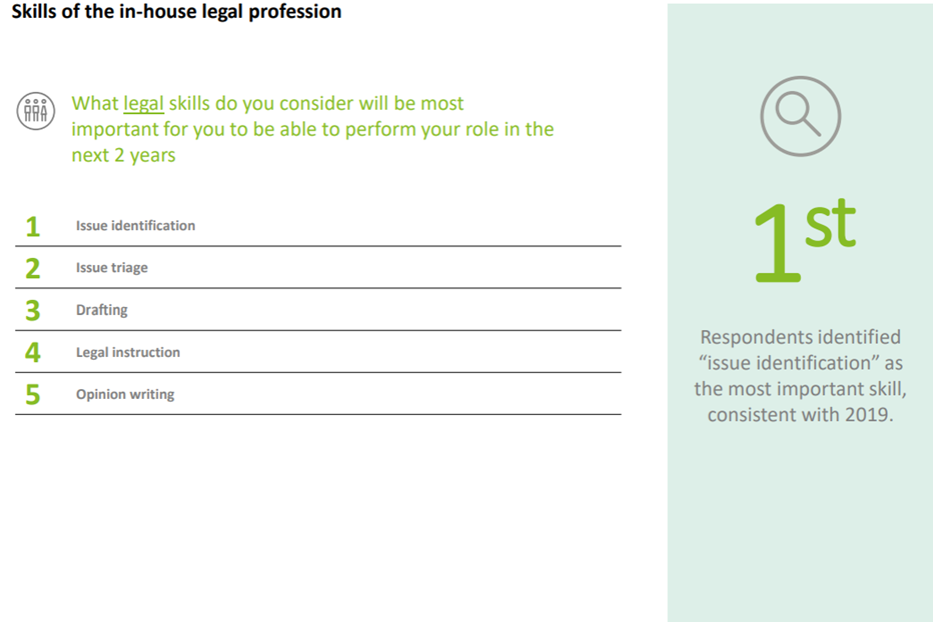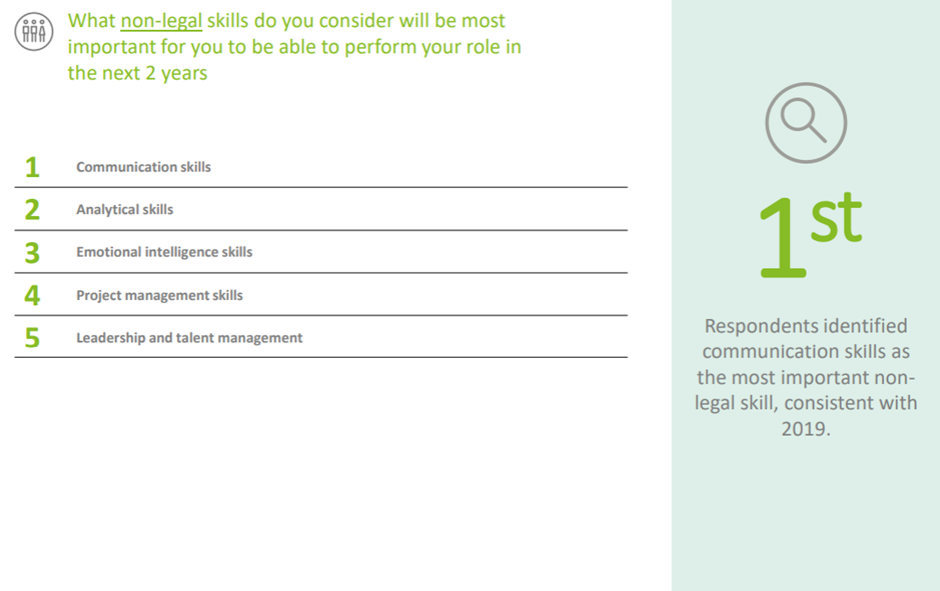
I found a few sections in Deloitte's In-house Insights Report, “Trusted navigators in complex and challenging environments”, prepared in response to the September 2022 survey of New Zealand's in-house legal community, fascinating.
They were questions about the skills of the in-house legal profession, and in particular:
- What legal skills do you consider will be most important for you to be able to perform your role in the next 2 years and
- What non-legal skills do you consider will be most important for you to be able to perform your role in the next 2 years.

If they are skills that a lawyer needs to perform their role, then aren't they ALL legal skills?
I would say that is the case already.
But I would also suggest that the skills identified as being particularly "legal" skills are also the ones that are most at risk of being automated.
There are already solutions in the market, or coming, powered by AI that will help significantly with issue identification, issue triage, drafting, legal instruction, and opinion writing. Technology will not fully replace people in these tasks but will significantly assist them. The people who are doing this work in the future won't necessarily need to be lawyers – often, the goal will be to build legal knowledge, analysis and outputs directly into business processes so that business people don't need to come to a lawyer except for the value they will add.
Communication skills, analytical skills, emotional intelligence, project management, leadership, and talent management will be core things that people will want and need - from a lawyer or some other adviser - when deciding if they need extra help and who to get it from. I can foresee legal teams and law firms proactively marketing these as "legal" skills.
I will be talking about this topic at The Law Association's Cradle to Grave Conference. As well as LawHawk being an exhibitor, I'm on a panel: "Evolving yet Enduring – A dance between tradition and transformation". The key theme of the panel is how AI and technology are reshaping legal practices, from research enhancements to client service transformations. This session will balance innovation with tradition, focusing on efficiency, ethical practice, and future trends. I'll be sharing our experiences about how key family law processes – wills, enduring powers of attorney, contracting out and separation agreements – can use technology to gather information from clients and draft documents, but (in my view) the ideal sweet spot is not to minimise lawyer time but perhaps have even more time spent with the client discussing the most important things that matter to the client.
In a time when everyone has access to technology, communication skills and emotional intelligence are the things that will truly differentiate one firm from others.
If you're a family lawyer and will be at Cradle To Grave, and you're interested in these issues, come by for a chat. Otherwise, you can contact us at any time for a chat here.
%20(1).jpg?width=290&name=Gene%20-%20December%202020%20v2%20(1)%20(1).jpg)




